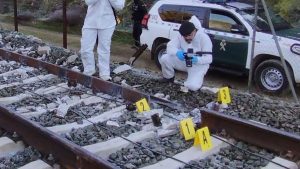Wisconsin considering nuclear energy expansion due to data center demand
Ella Greene April 24, 2025 0
Wisconsin legislators are considering a pair of bills that aim to support the expansion of nuclear energy within the state. These pieces of legislation were the subject of a public hearing on Wednesday, April 23, before the state Assembly’s Committee on Jobs and the Economy.
What would these bills do?
These two pieces of legislation were introduced in March by Reps. Shae Sortwell, R-Two Rivers, David Steffen, R-Howard, and state Sen. Julian Bradley, R-New Berlin.
Assembly Bill 108 would task the Public Service Commission with studying potential sites for new nuclear reactors throughout Wisconsin. This study would be due within a year of the bill’s potential enactment and would incorporate findings from a recent U.S. Department of Energy report. That federal report identified two decommissioned coal plant sites in Wisconsin as potential locations for future nuclear installations.
Meanwhile, Assembly Bill 132 proposes organizing a one-time nuclear power summit at the University of Wisconsin–Madison. The event would take place in the university’s upcoming engineering building once construction is complete. Proponents of the summit say it would offer a platform to share knowledge and explore nuclear energy opportunities.
“Nuclear power is always available and will be a critical part of our infrastructure, and these bills are a small step forward in recognizing that reality,” Sortwell said. “I think the nuclear renaissance is upon us, and I think it’s here now, and we better be ready for it.”
Did the committee discuss any other nuclear initiatives?
In addition to traditional nuclear power, the hearing also touched on the potential of nuclear fusion — a technology still under development but one that promises a potential source of near-limitless energy.
Several Wisconsin-based startups are exploring fusion energy, and University of Wisconsin–Madison nuclear engineering Professor Paul Wilson noted that the state’s established manufacturing and supply chain industries could offer a competitive advantage in the emerging sector.
Why is Wisconsin considering these bills?
The timing of these legislative efforts comes as Wisconsin experiences rising electricity demand, partly driven by the growth of energy-intensive data centers that support artificial intelligence operations.
“The state of Wisconsin imports six times more energy than it produces,” Steffen said. “And with the prospect of data centers coming to Wisconsin, the need for power generation only is going to increase.”
What happens next?
This was the first public hearing for these bills, as both are still awaiting a vote by the committee before they can potentially continue through the legislative process.
Related Stories
Ella Rae Greene, Editor In Chief
Ella Greene
Ella and the staff at Clear Media Project (CMP) curate these articles.
Unless otherwise noted CMP does not write these articles.
The views, thoughts, and opinions expressed in the articles published on this blog belong solely to the original authors and do not necessarily reflect the views of the blog owner. The blog owner does not claim ownership of the content shared by contributors and is not responsible for any inaccuracies, errors, or omissions.
All rights and credits goes to its rightful owners. No Copyright Infringement is intended. If you believe any content infringes on your rights, please contact us for review and potential removal.





